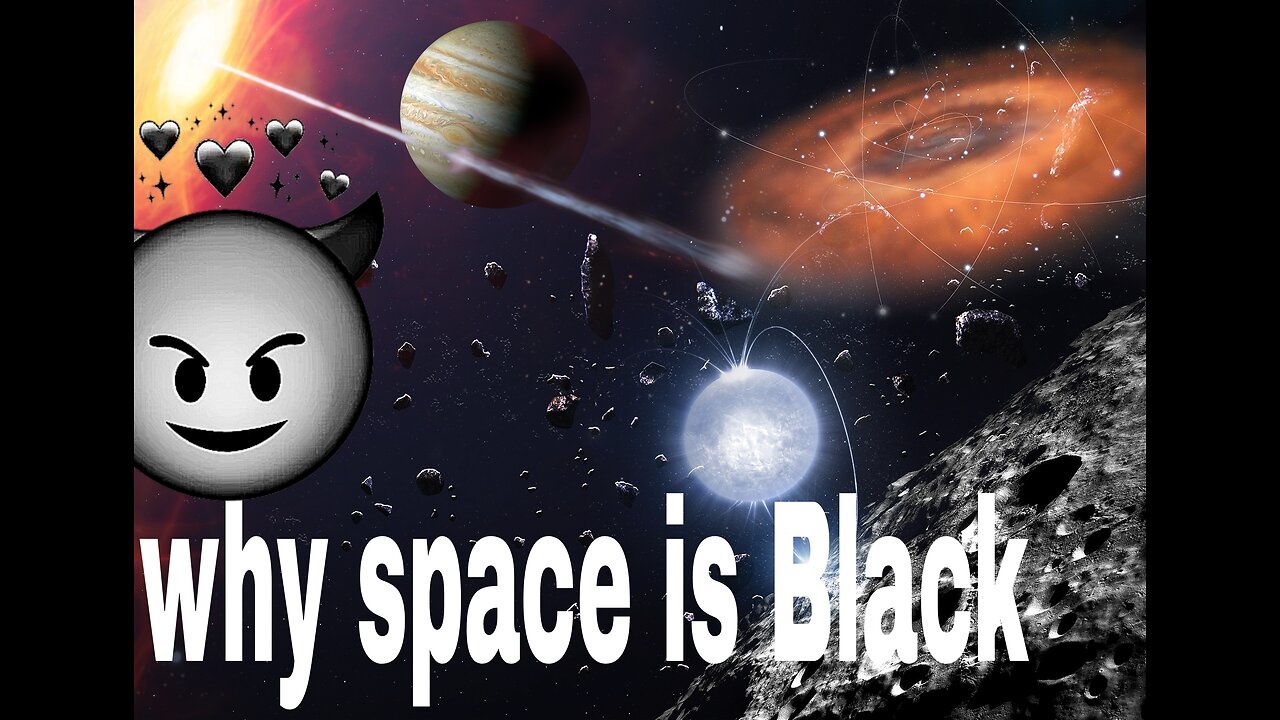Premium Only Content

Why Is Space Black? | Space Video
Space appears black to us because it is a vast expanse largely devoid of matter and, consequently, light. Here's why:
Lack of Matter: Space is primarily empty, with an extremely low density of matter, including gas, dust, and other particles. As a result, there are not enough particles to scatter or reflect light in various directions, making it appear dark.
Light Absorption: When light encounters matter, it can be absorbed, transmitted, or reflected. In space, there's very little matter to reflect or scatter light, so the light is mostly absorbed by any object it encounters, contributing to the darkness.
Expanding Universe: The vastness of space is expanding, causing galaxies and other celestial objects to move away from each other. The expansion causes the light from these objects to redshift, making them appear more towards the red end of the spectrum.
Background Cosmic Microwave Radiation: The afterglow of the Big Bang, known as the cosmic microwave background radiation, is a faint glow of microwave radiation evenly distributed throughout space. This radiation is a remnant of the early universe and contributes to the darkness of space.
When we look up at the night sky, the absence of scattering and absorption of light, combined with the expansion of the universe and the cosmic microwave background radiation, results in the perception of a black, seemingly infinite expanse.
-
 2:16:57
2:16:57
XxXAztecwarrior
3 hours agoSearching for more Reds!!
5.94K -
 2:44:34
2:44:34
TheItalianCEO
3 hours agoWhat about an Italian for breakfast?
8.54K1 -
 9:06
9:06
nospeedlimitgermany
1 day ago $1.16 earnedMercedes-Benz 500 SE W126 | 231 PS | Top Speed Drive German Autobahn No Speed Limit POV
13.8K3 -
 LIVE
LIVE
IamNibz
5 hours ago $0.53 earnedLaw 56- Elden Ring Challenge (PC)
77 watching -
 39:33
39:33
Chris Harden
8 days ago $1.84 earnedKansas Backroads | What's Really Out Here? - Rush County
9.04K14 -
 23:49
23:49
marcushouse
1 day ago $1.08 earnedStarship Flight 10 Secrets Revealed & Future of Starbase! 🔥
9.5K6 -
 3:00
3:00
scoutthedoggie
1 day agoNovritsch SSG-96 Mk2 Airsoft Sniper Rifle
9.79K -
 2:07:31
2:07:31
The Connect: With Johnny Mitchell
1 day ago $25.00 earnedSecrets Of The Cocaine Cowboys: Miami Drug Lord Reveals Truth About His BILLION-DOLLAR Coke Empire
154K15 -
 21:20
21:20
AndresRestart
19 hours ago $0.64 earnedNintendo's GENIUS Mario & Zelda 40th Anniversary Plan!?
20.6K4 -
 10:35
10:35
Blackstone Griddles
20 hours agoPerfect Ribeye Every Time | Blackstone Griddles
6.05K2